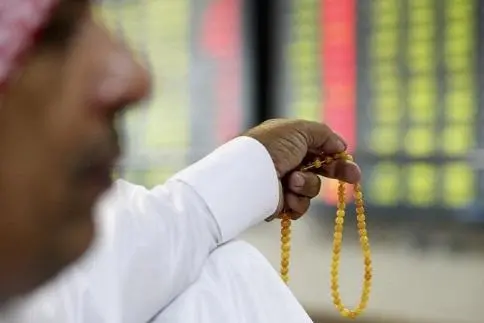PHOTO
By Bernardo Vizcaino
Nov 8 (Reuters) - Islamic scholars are finalizing work on a sharia standard for gold-based products set to become effective before the end of the year and possibly help kick start a new wave of product development in Islamic finance.
Gold has been treated mostly as a currency in Islamic finance, limiting its use to spot transactions, while consumer demand for gold in the Middle East region has actually fallen in recent years.
Guidance from the Bahrain-based Accounting and Auditing Organisation for Islamic Financial Institutions (AAOIFI) could address some of the reasons behind the lack of gold products in the industry and the muted demand from the region.
AAOIFI plans to issue its sharia standard on gold and its trading controls in coming weeks, Mohd Daud Bakar, founder and executive chairman of Amanie Group, said at an annual conference held by AAOIFI in Manama this week.
"The sharia standard on gold from my perspective is a game changer given the market conditions, given the preconceived idea that we have - even among the scholars themselves - that gold is very restricted."
Until now there has been little guidance for products which classify gold as a commodity, rather than a currency.
The standard would address issues including collateral, set-off, screening and the exchange of gold in spot and deferred transactions, Bakar said.
This would help remove misunderstandings in the use of gold by Islamic banks and to an extent help address concerns from more conservative scholars, he added.
Sharia-compliant products backed by gold could include exchange traded funds, savings accounts and Islamic bonds.
The industry faces constraints in the depth and breadth of assets available for Islamic investors, while the standard could spur a new wave of product innovation, said World Gold Council chief executive Aram Shishmanian.
"Increasing accessibility to gold can be one of the tools to help the growth of Islamic finance."
Over past 20 years, consumer demand for gold has fallen in the Middle East compared to markets like India and China, Shishmanian said.
Consumer demand for gold from the Middle East region hovered around 300 tonnes in 2015, representing less than a third of the demand seen in markets like China and India, according to a presentation by the WGC.
(Editing by Shri Navaratnam) ((Bernardo.Vizcaino@thomsonreuters.com; Telf: +61293218168; Reuters Messaging: bernardo.vizcaino.thomsonreuters.com@reuters.net))
Nov 8 (Reuters) - Islamic scholars are finalizing work on a sharia standard for gold-based products set to become effective before the end of the year and possibly help kick start a new wave of product development in Islamic finance.
Gold has been treated mostly as a currency in Islamic finance, limiting its use to spot transactions, while consumer demand for gold in the Middle East region has actually fallen in recent years.
Guidance from the Bahrain-based Accounting and Auditing Organisation for Islamic Financial Institutions (AAOIFI) could address some of the reasons behind the lack of gold products in the industry and the muted demand from the region.
AAOIFI plans to issue its sharia standard on gold and its trading controls in coming weeks, Mohd Daud Bakar, founder and executive chairman of Amanie Group, said at an annual conference held by AAOIFI in Manama this week.
"The sharia standard on gold from my perspective is a game changer given the market conditions, given the preconceived idea that we have - even among the scholars themselves - that gold is very restricted."
Until now there has been little guidance for products which classify gold as a commodity, rather than a currency.
The standard would address issues including collateral, set-off, screening and the exchange of gold in spot and deferred transactions, Bakar said.
This would help remove misunderstandings in the use of gold by Islamic banks and to an extent help address concerns from more conservative scholars, he added.
Sharia-compliant products backed by gold could include exchange traded funds, savings accounts and Islamic bonds.
The industry faces constraints in the depth and breadth of assets available for Islamic investors, while the standard could spur a new wave of product innovation, said World Gold Council chief executive Aram Shishmanian.
"Increasing accessibility to gold can be one of the tools to help the growth of Islamic finance."
Over past 20 years, consumer demand for gold has fallen in the Middle East compared to markets like India and China, Shishmanian said.
Consumer demand for gold from the Middle East region hovered around 300 tonnes in 2015, representing less than a third of the demand seen in markets like China and India, according to a presentation by the WGC.
(Editing by Shri Navaratnam) ((Bernardo.Vizcaino@thomsonreuters.com; Telf: +61293218168; Reuters Messaging: bernardo.vizcaino.thomsonreuters.com@reuters.net))





















